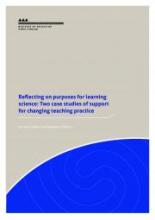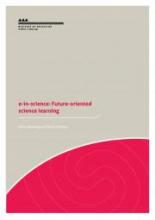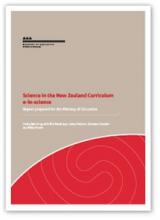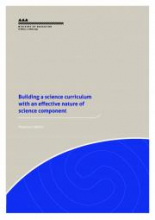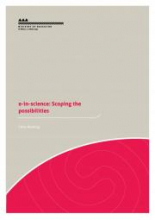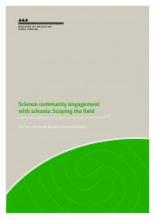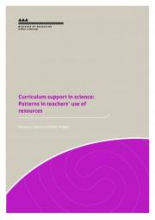NZCER has considerable expertise in science education. Our work programmes in the last decade have spanned assessment resource/test development, and research-based curriculum support. They include the following:
Science Curriculum Support
This 2011-2013 programme of work comprised three MOE-funded projects which were focused on: science curriculum implementation; science community engagement; and e-learning opportunities in science. The research and resource development was carried out in partnership with the University of Waikato and Learning Media. The conceptualisation and design of five Science Capabilities for Citizenship was a significant output. (Other outputs are listed at the bottom of this page.)
Assessment Resource Banks (ARBS)
A large bank of science items has been developed over several decades. They have a focus on assessment for learning and provide feedback to teachers about potential next learning steps for students. The most recently added items are online and have student response functionality. Current work is focused on linking these to the science capabilities.
National Monitoring Study of Student Achievement (NMSSA)
This work is undertaken in partnership with the University of Otago. The NZCER science team took responsibility for the conceptual design of the most recent round of assessment in science, which had a focus on science capabilities. The primary output is a report to MOE that documents patterns of student achievement in science at year 4 and year 8. The team has also drawn on the data base to produce two additional reports: Insights for Teachers; and Science in the New Zealand Curriculum: Understanding progress from levels 2-4.
The NMSSA team is currently developing an online assessment tool to support school-based curriculum inquiry in science at years 7 and 8. The tool allows schools to investigate how their students achieve on items that are similar to those used in the NMSSA science assessment. Reporting associated with the new tool will provide diagnostic information and next steps to inform programme design. The tool will be made available on the ARB website.
Science Thinking with Evidence (STwE)
There are two science assessment resources in NZCER’s collection of standardised assessment resources. Junior Science Thinking with Evidence is designed for students in years 4-6 and is an online resource. Science Thinking with Evidence is for students in years 7-10. There are both paper and online versions. The junior resources are the most recently developed and have an explicit focus on assessment of science capabilities.
Science Engagement Survey
The Science Engagement Survey is a free online tool to help teachers find out how students perceive their science learning in class. There are two versions of the survey: one for Years 0 to 4 and one for Years 5 to 10. The team envisaged that this tool would be withdrawn once Junior Science: Thinking with Evidence was published but popular demand to keep it going resulted in a commitment to maintain its availability.
Revision of the Tokelau Curriculum in Science
In partnership with Kahu Education and Evaluation Associates, this project is aligning science in the Tokelau Curriculum with the New Zealand Curriculum. Big ideas in science, the Nature of Science strand, and the contextual stands of the New Zealand Curriculum are all being integrated into descriptions of student learning and progression at each year level. At senior levels, there is also a focus on assessment, and emerging developments in the review of NCEA.
Related research
A new book about Teaching for Complex Systems Thinking will be published in mid- 2021. It is not exclusively about science, but includes many science examples. A free preliminary publication is available here.
Outputs from the science curriculum support projects (2011-2013)
- A background paper on the role of the Nature of Science strand.
- A report of the results of a survey of current science teacher practice.
- A report on the potential of e-learning in science.
- A report on initiatives that link students’ science learning to the wider community.
- A synthesis paper that looks across all three projects to make the case for substantive change in New Zealand's approach to science education.
Other initiatives to support the main work programme have included:
- An exploratory study about what progress in developing science capabilities might look like.
- A curriculum planning deck with a focus on science capabilities.
- A book that describes different approaches to planning a primary school science curriculum.







